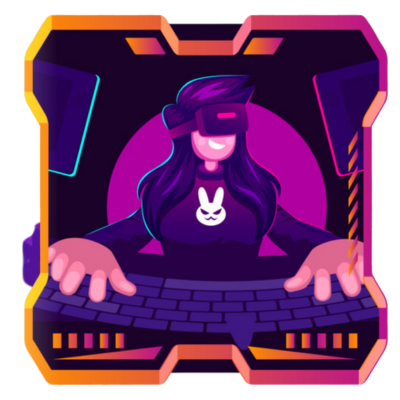Introduction
The rise of Web3 games has introduced a new paradigm in the gaming industry, one where decentralization, player ownership, and community-driven development are at the forefront. A key component of this transformation is governance—the mechanisms and structures that allow players, developers, and stakeholders to participate in the decision-making processes that shape the future of these games. Governance in Web3 game ecosystems is not just about rules and regulations; it is about creating a collaborative environment where the community has a real stake in the game’s evolution. In this blog, we will explore the role of governance in Web3 games, the technical aspects that underpin it, and the impact it has on the gaming experience. We will also examine how Web3 gaming companies, particularly those in the USA and India, are pioneering these governance models.
Web3 Game Development Company
Work with a leading Web3 game development company to create the future of gaming.

Understanding Governance in Web3 Games
What Is Governance in Web3 Games?
Governance in Web3 games refers to the systems and processes that enable the community to influence and participate in the management and development of the game. Unlike traditional games, where the game developer or publisher holds central control over all decisions, Web3 games leverage decentralized governance models, often through the use of Decentralized Autonomous Organizations (DAOs). In these models, players and stakeholders can propose changes, vote on key issues, and contribute to the overall direction of the game.
Key Features of Web3 Game Governance
- Decentralized Decision-Making: In Web3 games, decisions are made collectively by the community, rather than being dictated by a central authority. This decentralization is enabled by blockchain technology and smart contracts, which automate governance processes and ensure transparency.
- Token-Based Voting: Governance in Web3 games often involves token-based voting, where participants use governance tokens to vote on proposals. These tokens are typically earned or purchased by players, giving them a stake in the game’s future.
- Community Proposals: Players and stakeholders can submit proposals for changes or new features in the game. These proposals are then voted on by the community, ensuring that the game’s development aligns with the interests of its players.
The Importance of Governance in Web3 Gaming
Governance is crucial in Web3 gaming because it empowers players to have a say in the development and management of the games they play. This level of involvement fosters a sense of ownership and investment in the game, leading to a more engaged and loyal community. Additionally, decentralized governance models can lead to more innovative and player-driven game development, as the community’s collective intelligence and creativity are harnessed to shape the game’s future.
The Technical Aspects of Governance in Web3 Games
Decentralized Autonomous Organizations (DAOs)
At the heart of governance in Web3 games are Decentralized Autonomous Organizations (DAOs). A DAO is a blockchain-based organization that operates according to rules encoded in smart contracts. These smart contracts automatically execute decisions based on the votes of the organization’s members.
- Smart Contracts: Smart contracts are self-executing contracts with the terms of the agreement directly written into code. In the context of DAOs, smart contracts govern the voting process, proposal submission, and implementation of decisions. This ensures that the governance process is transparent, secure, and tamper-proof.
DAO Governance Tokens: Governance tokens are the primary means of participation in a DAO. Holders of these tokens can vote on proposals, with the weight of their vote often proportional to the number of tokens they hold. These tokens can be earned through gameplay, purchased on the market, or distributed as rewards for contributions to the game.
Token-Based Voting Mechanisms
Token-based voting is a fundamental aspect of governance in Web3 games. It allows players to have a direct impact on the game’s development by voting on proposals using their governance tokens. There are several voting mechanisms commonly used in Web3 games:
- Single Token Voting: In this simple voting model, each governance token represents one vote. Players can vote for or against a proposal, and the option with the most votes wins. While straightforward, this model can lead to issues such as token concentration, where players with more tokens have disproportionate influence.
- Quadratic Voting: Quadratic voting is a more sophisticated model that aims to address the issue of token concentration. In this model, the cost of each additional vote increases quadratically, making it more expensive for a single player to dominate the voting process. This model encourages broader participation and more balanced decision-making.
- Weighted Voting: In weighted voting, the number of tokens a player holds determines the weight of their vote. This model is often used in DAOs where the governance tokens are distributed based on contributions to the game, ensuring that those who have invested more in the game have a greater say in its governance.
Proposal Submission and Implementation
The process of submitting and implementing proposals is another critical aspect of governance in Web3 games. This process typically involves the following steps:
- Proposal Submission: Any member of the community can submit a proposal for changes, updates, or new features in the game. Proposals are usually submitted through the DAO’s governance platform, where they are reviewed and discussed by the community.
- Community Voting: Once a proposal is submitted, it is put to a vote by the community. The voting period is typically set for a specific duration, during which players can cast their votes using their governance tokens.
- Implementation: If a proposal receives the required number of votes, it is approved and implemented. The implementation process is often automated through smart contracts, which execute the changes without the need for manual intervention.
Challenges in Implementing Governance
While governance in Web3 games offers many benefits, it also presents several challenges that developers and communities must address:
- Voter Apathy: One of the primary challenges in decentralized governance is voter apathy, where a significant portion of the community does not participate in the voting process. This can lead to decisions being made by a small group of active participants, potentially leading to outcomes that do not reflect the broader community’s interests.
- Sybil Attacks: Sybil attacks occur when an individual or group creates multiple fake identities to gain undue influence in the voting process. This can undermine the integrity of the governance system, leading to decisions that benefit only a select few.
- Coordination Costs: Decentralized governance requires significant coordination among participants, particularly in large communities. This can lead to delays in decision-making and implementation, as well as challenges in reaching consensus on complex issues.
The Impact of Governance on the Web3 Gaming Experience
Empowering Players and Communities
One of the most significant impacts of governance in Web3 games is the empowerment of players and communities. By giving players a voice in the development and management of the game, governance models foster a sense of ownership and responsibility among the community. This leads to a more engaged and loyal player base, as players feel that their contributions and opinions are valued.
- Player-Driven Development: Governance models enable player-driven development, where the community actively shapes the game’s evolution. This can lead to more innovative and creative game designs, as developers can tap into the collective intelligence and creativity of the community.
- Long-Term Engagement: By involving players in the governance process, Web3 games can foster long-term engagement and commitment. Players who have a stake in the game’s future are more likely to remain active participants, contributing to the game’s growth and success over time.
Creating Transparent and Fair Ecosystems
Governance in Web3 games also contributes to the creation of transparent and fair ecosystems. The use of blockchain technology and smart contracts ensures that all decisions and transactions are recorded on a public ledger, providing full transparency to the community.
- Transparency in Decision-Making: All governance decisions are recorded on the blockchain, allowing players to see how proposals were voted on and who participated in the process. This transparency builds trust within the community, as players can be confident that decisions are made fairly and openly.
- Fair Distribution of Rewards: Governance models can also ensure the fair distribution of rewards and incentives within the game. By involving the community in decisions about reward distribution, Web3 games can create more equitable ecosystems where contributions are recognized and rewarded appropriately.
Enhancing the Value of Digital Assets
The decentralized governance models used in Web3 games can also enhance the value of digital assets, such as NFTs and in-game currency. When players have a say in how the game is managed, they are more likely to invest in and value the digital assets they own.
- Increased Demand for Governance Tokens: As governance tokens play a central role in the decision-making process, their demand can increase, leading to higher market value. This incentivizes players to acquire and hold governance tokens, further aligning their interests with the game’s success.
- Valuable Digital Assets: The value of digital assets in Web3 games is closely tied to the governance model. Assets that are used or recognized in governance processes, such as voting or proposal submission, are more likely to be valued highly by the community.
Web3 Game Development Services
Work with a leading Web3 game development company to create the future of gaming.

How Web3 Gaming Companies Are Pioneering Governance Models
Leading Innovation in Governance
Web3 gaming companies, particularly those in the USA and India, are at the forefront of developing and implementing innovative governance models in Web3 games. These companies are experimenting with various decentralized governance structures, creating new ways for players and communities to participate in the decision-making process.
- Web3 Game Development Companies in the USA: Companies in the USA are leading the way in creating governance models that prioritize player empowerment and community involvement. These companies are known for their innovative approaches to game design and their ability to integrate governance seamlessly into the gaming experience.
- Web3 Game Development Companies in India: Indian companies are also emerging as leaders in Web3 game development, with a focus on creating decentralized ecosystems that foster collaboration and innovation. These companies are known for their technical expertise and creativity, contributing to the global growth of the Web3 gaming industry.
Building Decentralized Governance Platforms
Web3 gaming companies are also focused on building decentralized governance platforms that provide the infrastructure needed for players and communities to participate in the governance process. These platforms often include tools for proposal submission, voting, and smart contract execution, making it easier for communities to engage in governance.
- Web3 Game Platforms: These platforms support the creation and management of decentralized games, offering tools for governance, asset management, and community engagement. They play a crucial role in the expansion of the Web3 gaming ecosystem, providing a foundation for transparent and fair governance.
- DAO Toolkits: Web3 gaming companies are also developing DAO toolkits that provide developers with the tools and resources needed to implement governance models in their games. These toolkits often include templates for smart contracts, voting mechanisms, and governance frameworks, making it easier for developers to integrate governance into their games.
Supporting the Growth of Decentralized Communities
Web3 gaming companies are also playing a critical role in supporting the growth of decentralized communities. By providing the tools, resources, and platforms needed for governance, these companies are helping to build strong, engaged communities that drive the growth and success of Web3 games.
- Community Engagement Strategies: Web3 gaming companies are developing strategies to engage and incentivize communities, encouraging active participation in governance. This includes offering rewards for participation, creating educational resources, and hosting community events.
- Decentralized Governance Education: Educating players about decentralized governance is essential for ensuring that they can effectively participate in the decision-making process. Web3 gaming companies are creating educational content, tutorials, and workshops to help players understand the mechanics and importance of governance in Web3 games.
Level Up Your Web 3 Game! Get Expert Development Services Now!
Work with a leading Web3 game development company to create the future of gaming.

The Future of Governance in Web3 Games
The Evolution of Governance Models
As the Web3 gaming ecosystem continues to grow, we can expect to see the evolution of governance models that are more sophisticated, inclusive, and effective. These models will likely incorporate new technologies, such as artificial intelligence (AI) and machine learning, to enhance decision-making processes and improve the overall governance experience.
- AI-Powered Governance: The integration of AI into governance models could enable more efficient decision-making processes, where proposals are analyzed and evaluated using machine learning algorithms. This could help communities make more informed decisions and improve the overall effectiveness of governance.
- Layered Governance Models: Future governance models may also incorporate layered approaches, where different levels of governance are implemented for different aspects of the game. This could include separate governance structures for in-game economies, content creation, and community management, allowing for more specialized and effective decision-making.
Expanding the Role of Governance in Virtual Worlds
The role of governance in Web3 games is likely to expand beyond individual games to encompass entire virtual worlds and ecosystems. As the metaverse continues to develop, governance models will play a crucial role in managing the interactions, economies, and communities within these interconnected virtual environments.
- Metaverse Governance: Governance in the metaverse will involve managing the interactions between different virtual worlds, ensuring that they operate harmoniously and that players can move seamlessly between them. This will require the development of new governance frameworks that can scale across multiple platforms and ecosystems.
- Cross-Platform Governance: As Web3 games become more interconnected, cross-platform governance models will be needed to manage interactions and decision-making processes across different games and platforms. This will involve creating standards and protocols for governance that can be applied universally across the Web3 gaming ecosystem.
Enhancing Player Empowerment and Engagement
The future of governance in Web3 games will also focus on enhancing player empowerment and engagement, ensuring that players have a meaningful and impactful role in the development of the games they play. This will involve creating more accessible and inclusive governance models that encourage broader participation.
- Increased Accessibility: Making governance more accessible to a wider range of players will be a key focus in the future. This could involve simplifying the governance process, providing more educational resources, and creating user-friendly interfaces for proposal submission and voting.
- Incentivizing Participation: Incentivizing participation in governance will also be crucial for ensuring that players remain engaged and invested in the game’s future. This could include offering rewards for voting, creating gamified governance experiences, and recognizing the contributions of active participants.
Conclusion
Governance plays a pivotal role in the Web3 gaming ecosystem, enabling players, developers, and communities to actively participate in the decision-making processes that shape the future of their games. By leveraging decentralized governance models, such as DAOs and token-based voting, Web3 games empower players with a sense of ownership and responsibility, leading to more engaged and loyal communities.
Web3 gaming companies, particularly those in the USA and India, are at the forefront of developing innovative governance models and platforms that prioritize transparency, fairness, and community involvement. As the Web3 gaming ecosystem continues to evolve, the role of governance will expand, encompassing entire virtual worlds and creating new opportunities for player-driven development.
However, achieving effective governance in Web3 games is not without its challenges. Developers must navigate technical, regulatory, and coordination hurdles to ensure that governance models are secure, scalable, and inclusive. By addressing these challenges and continuing to innovate, the Web3 gaming community can create a more collaborative and empowering gaming experience for players around the world.
The future of Web3 gaming lies in the hands of its players, and governance is the key to unlocking the full potential of this new era in gaming. As more players and developers embrace decentralized governance, the Web3 gaming ecosystem will continue to thrive, offering a more transparent, fair, and engaging experience for everyone involved.



